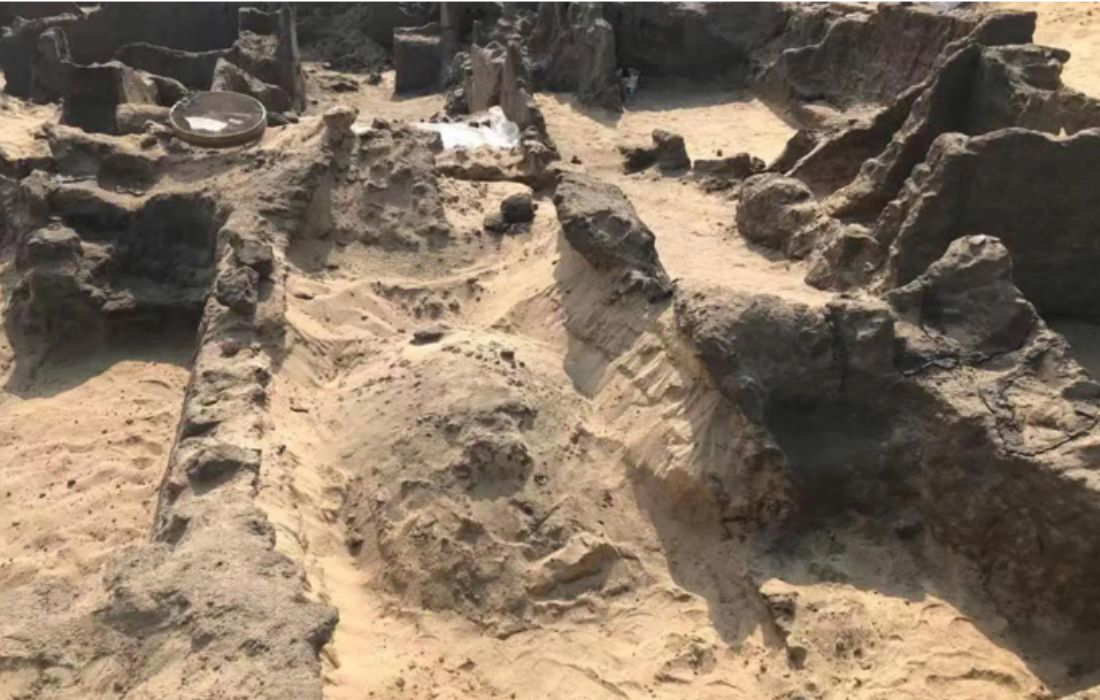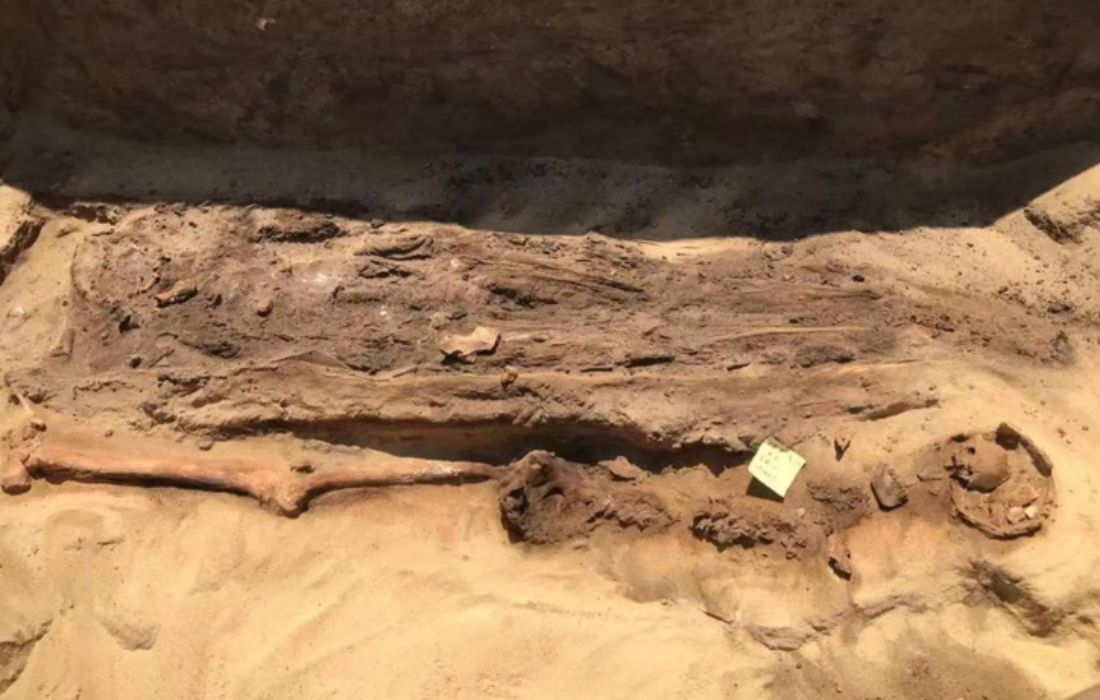
Egyptian Ministry of Tourism
Gold-Tongue Mummies location is at an ancient cemetery of Qewaisna in Egypt. The Necropolis is around 40 miles north of Cairo. The finds date between 300 BCE and 640 CE. Egypt’s Supreme Council for Archaeology said this is also an extension of the cemetery that held different archaeological tombs. They date from various periods.
Gold-Tongue Mummies as a Way of Worshipping the Lord of the Underworld

Egyptian Ministry of Tourism
Golden chips are deteriorating in the mouths of the mummies. At some point, somebody removed the tongues, and replaced them with gold foil pieces, fashioned like human tongues. Also, the gold chips had a shape of lotus flowers and scarabs. This ritual should enable the deceased to address Osiris‘ court. Osiris was a judge of the dead, and the underworld in ancient Egypt.
Also, similar discoveries took place in western Alexandria at Taposiris Magna. It translates as the “great tomb of Osiris”. Archaeologists also discovered wooden coffins, copper nails, and burial. Also, they unearthed the leftovers from additional burying materials. Those could be glue and tar.

Anubis mummifying Osiris, flanked by Horus and Toth, via Elias Rovielo/Flickr
Qewaisna discovery takes place in 1989. Researchers discovered evidence the necropolis was used across three distinct time periods, since then. This confirms the head of the Egyptian archaeology sector at the Supreme Council of Archaeology, Ayman Ashmawi.
Get the latest articles delivered to your inbox
Sign up to our Free Weekly Newsletter
Archaeologists discovered shifts in burial practices as they combed through several strata. So, it is noteworthy there were several burial directions and body placements. They know this because different burial customs have been recorded at different levels of the site.
Myth of the Osiris, Egyptian God of the Afterlife

Egyptian Ministry of Tourism
Osiris is the god of fertility, agriculture, the afterlife, the dead, resurrection, life, and vegetation in ancient Egyptian religion. He is a first association to the mummy wrap. When his brother, Seth cut him up into pieces after killing him, Osiris’ wife Isis found all the pieces and wrapped his body up. That enabled him to return to life.
Osiris was also widely worshipped until the decline of ancient Egyptian religion, during the rise of Christianity in the Roman Empire. Osiris was also the judge and lord of the dead and the underworld, the “Lord of Silence”.
The first evidence of the worship of Osiris is from the middle of the Fifth Dynasty of Egypt (25th century BC). Some Egyptologists believe the Osiris mythos may have originated in a former living ruler – possibly a shepherd who lived in Predynastic times (5500–3100 BC) in the Nile Delta.

By Angela DavicNews, Discoveries, In-depth Reporting, and AnalysisAngela is a journalism student at the Faculty of Political Science in Belgrade and received a scholarship for continued education in Prague. She completed her internship at the daily newspaper DANAS and worked as an executive editor at Talas.





